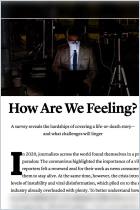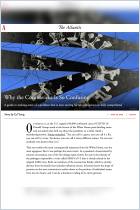Únase a getAbstract para acceder al resumen.

Únase a getAbstract para acceder al resumen.
Samantha K Brooks, Rebecca K Webster, Louise E Smith, Lisa Woodland, Simon Wessely, Neil Greenberg and Gideon James Rubin
The Psychological Impact of Quarantine and How to Reduce It
Rapid Review of the Evidence
The Lancet, 2020
¿De qué se trata?
Quarantine has negative psychological effects which can be mitigated by clear information.
Recommendation
The COVID-19 pandemic has spread around the globe, putting much of the world’s population in quarantine. Whether told to self-isolate, shelter in place, or stay within a hundred meters of home, this is an unfamiliar and uncomfortable situation for most. Smaller groups of people have been in similar circumstances over the past 20 years, and people can learn from the studies of how they fared while they were in quarantine and after they emerged. These studies are invaluable if people want to know what their next few months will likely look like.
Summary
About the Authors
Samantha K. Brooks, Rebecca K. Webster, Louise E. Smith, Lisa Woodland, Simon Wessely, Neil Greenberg and Gideon James Rubin are in the Department of Psychological Medicine at King’s College London, where they work on the impact of disasters on distress and psychological health disorders, and how people perceive potential health risks.


















Comment on this summary